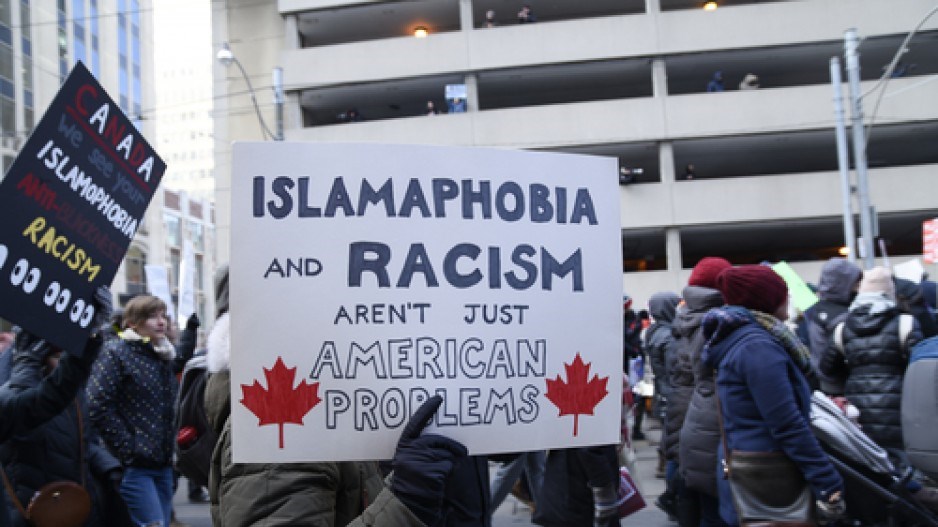Over the past couple of years, concerns about racism have entered the realm of international politics. We have witnessed some electoral success by xenophobic parties in Europe, as well as the dreadful statements of a Republican presidential contender in the United States who is now the country’s head of state.
Just last weekend, Virginia Governor Ralph Northam got in trouble over a photograph allegedly taken when he was attending medical school, at a time when he was not young enough to rely on the “boys will be boys” defence. Several professional football players have protested police brutality and racial profiling in the United States.
In spite of what is happening down south and on the other side of the Atlantic, Canadians are not immune to racism. Individuals and organized groups have taken advantage of the anonymity of social media to push a remarkably divisive agenda.
Some politicians have attempted to ignore the controversy. Quebec Premier François Legault recently made an ill-timed remark – on the second anniversary of a shooting inside a mosque that left six men dead – claiming that Islamophobia does not exist in his province. In Ontario, just how and when to resort to the acrimonious practice of “carding” – the stopping and documenting of individuals by police even though no particular crime is being investigated – is still a matter of debate.
In Western Canada, British Columbia’s provincial government is preparing to re-establish a human rights commission. On the Prairies, provincial administrations have been severely criticized for not doing enough to help First Nations. In Manitoba alone, 11 of the 19 people who have lost their lives in police incidents this century have been identified as Aboriginal.
When Research Co. asked Canadians about racism in the country last month, the results were not uplifting. Two in five respondents to the survey (41%) think racism has become a more significant problem in Canada over the past two years. Women (47%) and Canadians aged 18 to 34 (46%) are more likely to feel this way.
Quebecers appear to be in tune with their current head of government, with 55% of the province’s residents asserting that racism has not worsened. Conversely, there is one area of Canada where residents are convinced that racism is growing. In Manitoba and Saskatchewan, a whopping 55% of residents think racism has become a more significant problem recently. No other region of the country surpasses the 50% mark on this question.
That a sizable number of Canadians are concerned about racism should lead to a debate over the success of government policies. When Canadians were given a choice, just over two in five residents (42%) endorsed the multicultural concept of the “mosaic” and think cultural differences within Canadian society are valuable and should be preserved. A larger proportion of Canadians (49%) express a preference for the concept of the “melting pot” and want immigrants to assimilate and blend into Canadian society.
While women are equally divided in their assessment of the two concepts, most men (53%) favoured the “melting pot.” And while a majority of those aged 18 to 34 (60%) are fond of the “mosaic,” support for this idea falls to 39% among those aged 35 to 54 and 27% among those aged 55 and over.
On a regional basis, British Columbians are the most enthusiastic supporters of the “mosaic” (52%). A majority of Quebecers (53%) are in favour of the “melting pot.”
The survey shows two in five Canadians reporting an upsurge of racist behaviour and practically half desiring a “melting pot.” When asked directly about multiculturalism, 62% of residents think it has been “very good” or “good” for Canada, while 33% deem it “bad” or “very bad.”
While these numbers would imply success, support for the policy is half-hearted. Practically the same proportion of Canadians regard multiculturalism as “very good” (13%) and “very bad.” The difference in the total numbers amount to the 49% who claim the policy has been “good,” compared to the 19% who say it has been “bad.”
In an election year, it is important to analyze these findings by political allegiance. The voters who supported the Liberal Party or the New Democratic Party (NDP) in the last federal ballot hold similar views on two issues: multiculturalism has been good for the country and the “mosaic” is preferable to the “melting pot.” However, NDP voters are more likely to think racism has become a bigger problem recently (55%) than Liberal voters (40%).
In stark contrast, Canadians who voted for the Conservative Party in the 2015 federal election are unequivocally more likely to say that multiculturalism, as a policy, has been bad for Canada (42%), to express that racism has not become a significant problem in the country (56%) and to choose the “melting pot” (62%). Centre-right parties have never wholly embraced multiculturalism, which is often regarded as a legacy of the Pierre Trudeau era. They are not expected to do so now.
The survey suggests that while Canadians may not love everything about multiculturalism, they are signalling that they can be trusted to handle newcomers in a “melting pot” scenario better than the Americans. In any case, the fact that two in five residents feel that racism is intensifying should be disturbing for policy-makers.
Mario Canseco is president of Research Co.




